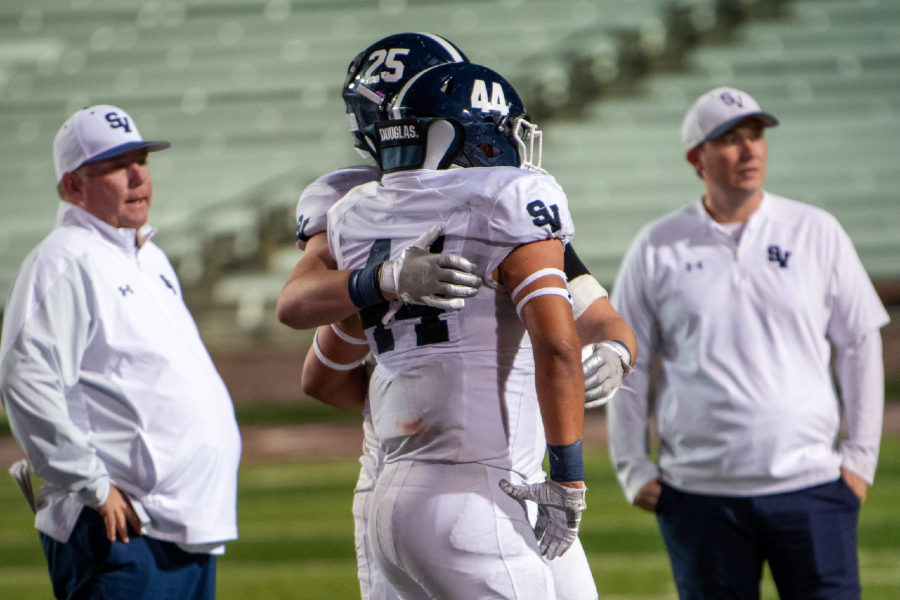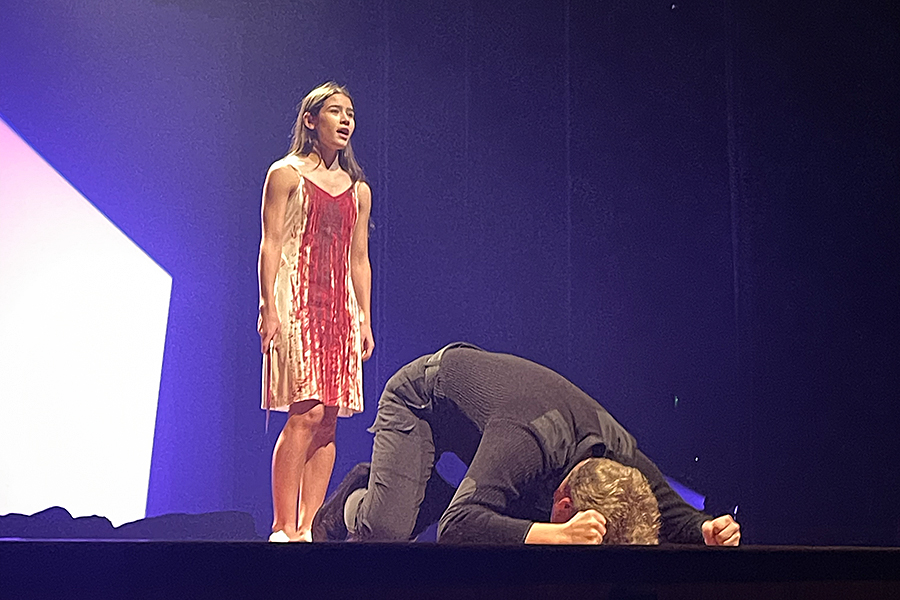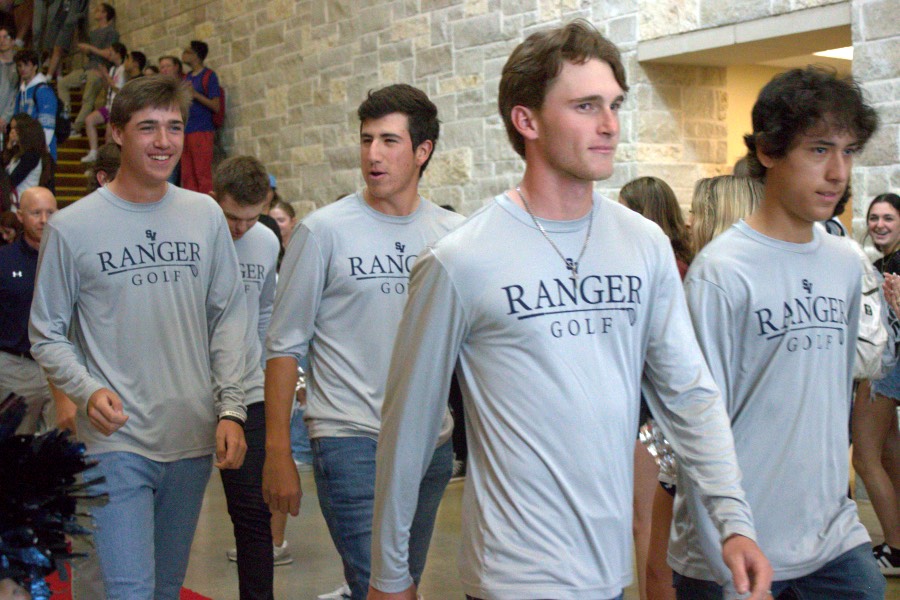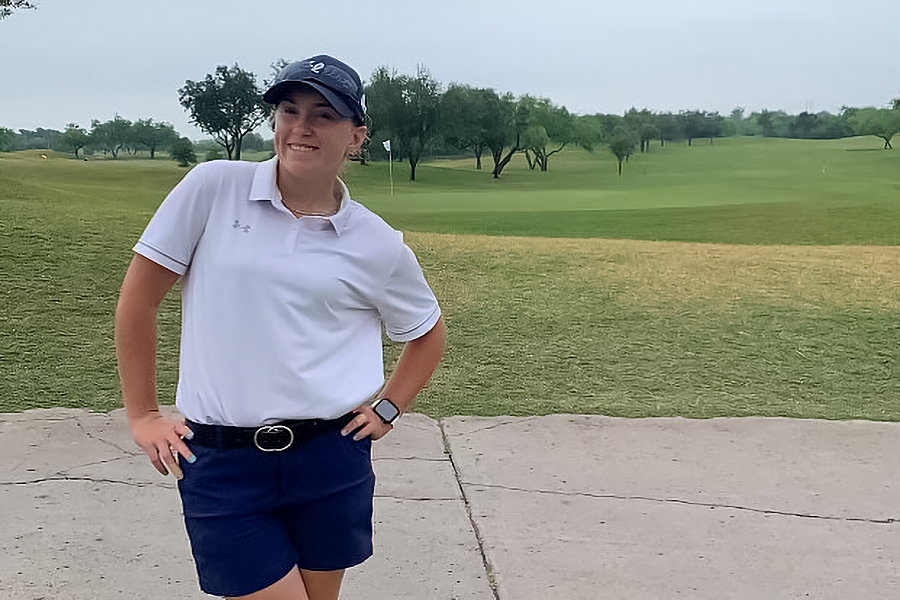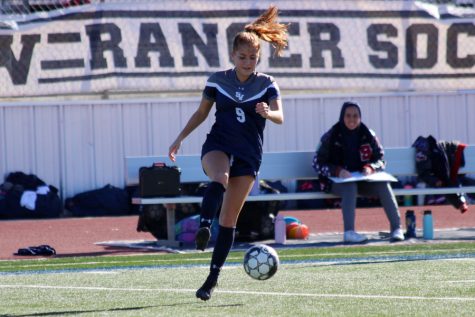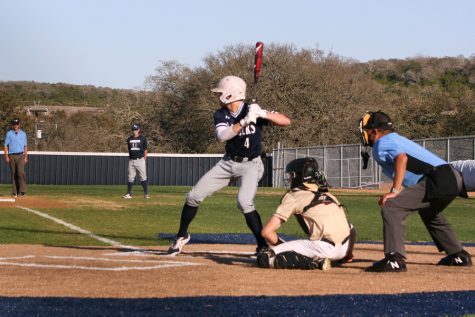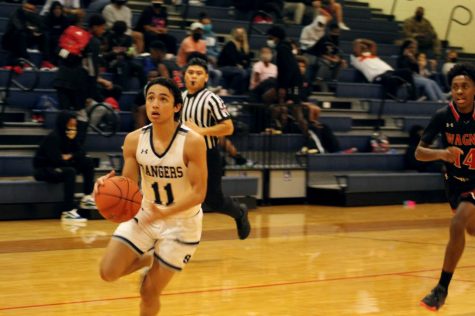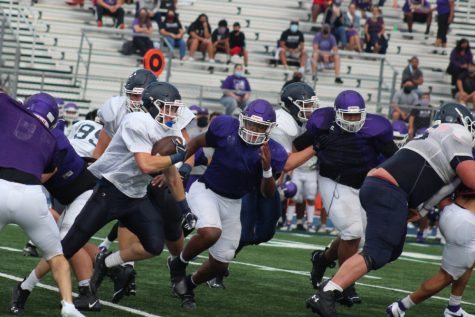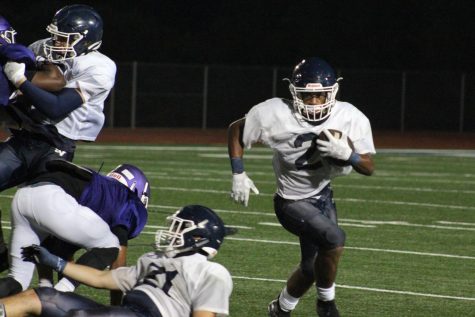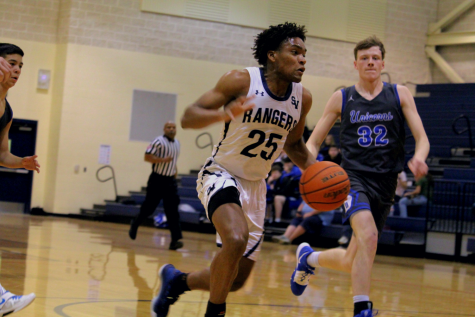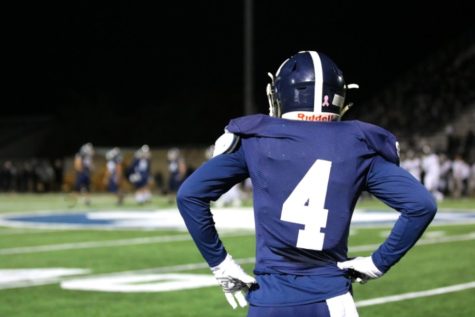All good things
‘I wish there was a way to know you were in the good old days before you actually left them.’
Jaxson Maynard (No. 25) comforts senior Kolton Scheppler after football’s season-ending loss to Austin Bowie. The loss marked the end of Sports Director Jackson Posey’s four-year run covering the team.
November 20, 2021
When the clock hit zero on football’s second-round playoff loss on Friday, it didn’t just mark the end of a game or a season.
For me, it was the end of an era.
In the past four years, I’ve written or tweeted about every single Ranger football game, 46 in total, including a scrimmage and a game cancelled for inclement weather. I’ve written over 80 articles and well over 100 thousand words about the team, winning several awards for my troubles.
I’ve conducted dozens of interviews, sent thousands of tweets and recorded hours of podcast material. I created an entire website and media network to cover Smithson Valley recruiting, based largely on my knowledge of the football team.
I became the first Valley Ventana staffer to ever set foot in the press box, and I used that opportunity to create numerous business connections. Sitting in that booth, I’ve been privy to laughter and tears, expletives and excitement, dejection and elation, often in rapid succession.
I was never a football player myself, but with some help from head coach Larry Hill, I taught myself more than a Madden understanding of the sport. How it worked, how to identify schemes and why bad things happen to good football teams. It was a grueling process, but a rewarding one.
And it was all worth it.
Perhaps the most formative moment of my entire high school career came in the fall of my sophomore season. I was stressed out and overcommitted, and those issues were compounded by my inexperience and stubbornness. And that combination had a tangible impact on my writing.
My journalistic experience prior to high school could be summed up by a collection of clickbait-y NBA articles I wrote in seventh grade, particularly this one. And I brought that same mentality to the Valley Ventana. I thought that any article that evoked emotion was a good article, regardless of which emotions I evoked.
This was not only patently untrue, but quickly became uncivil and dangerous.
As I developed as a writer and pundit, I became more pointed in my criticisms, calling out “noodle-armed” quarterbacks and drops galore. Any “bad” play became the subject of my apparent wrath, and although my motives were not inherently malicious, that was impossible to discern from the outside. Before long, I had become an unwitting cyberbully.
Everything came to a head in Week 8. A 10-0 lead over district powerhouse Judson quickly evaporated as the Rockets ripped off a 30-3 run in the final three quarters. This failure was absolute gold to my 16-year-old brain. Here’s one excerpt of particular vitriol from my since-deleted recap of the game:
“In the wee seconds of the second quarter, (Greg) Eggleston broke a 38-yard run. That would seem to set up the offense pretty nicely, especially when coupled with his subsequent six-yard reception on a screen pass. So the Rangers decide to ride the hot hand, but not by getting him open or giving him an opportunity to make plays. No, they decide to ride the hot hands by giving him what may be the least-creative call any coach can make: halfback draw.
“Eggleston is a skinny guy, and it was no surprise when he only managed one yard rather than the desired… three? Four? It boggles the mind to watch two plays that look like they were birthed by Sean McVay, only to turn around and time-travel back to the days of Walter Camp and 5¢ gum.”
Not only did I possess a total lack of understanding of the sport of football, body types and even AP Style, I did so in a way that led to the open, unrepentant, public bashing of other humans on the internet. And I was completely, willingly oblivious to this major flaw.
The next day, a player for whom I had the utmost respect sent me a series of direct messages on Instagram, setting me straight on the impact I was actually having. It made for an incredibly difficult Saturday, complete with panic attacks and hours of soul searching, but it helped me wake up the next morning as a better man. And by the grace of God, I pulled myself together and began treating people with the dignity they deserve.
That story is not one of heroism; in fact, it makes me look pretty awful. But God has been faithful to me, and has used this relatively esoteric medium to help me grow not only as a reporter, but in the way I engage with and speak about others. And for that, I am eternally grateful.
Football may be over, but my time as Sports Director isn’t. For the rest of this year, we will continue pumping out content about everything from recruiting to realignment and every sport in between. And we have big plans to innovate and expand our coverage in the coming months.
But as much as I love covering those other teams, there’s just something different about those Friday night lights. For me, it’s where this all began. From social media management as a freshman to podcasting as a senior, with features, previews and a pandemic in between, I came into my own as a football reporter.
And no matter how many sports I cover, no matter how many sarcastic tweets I send, no matter how far I progress in the journalism industry, there will always be a special place in my heart for Ranger football.

